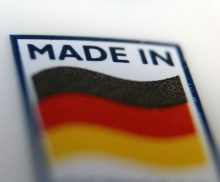

Who invented “Made in Germany”?
I can hear most of you say, “Some Germans, who else…” as you read the question in the heading. At least I would have said so until recently if someone had asked me that. The right answer: not some Germans… but some Britts. 🙂
From Springer(.)com: “The British officials who coined the phrase “Made in Germany” intended it as an insult. In 1887, alarmed at an influx of low-priced German products, the British government required goods imported from Germany to be labeled as such. Back then; Germany was to Britain something like China is to Europe or the United States today. It was an aggressive emerging economy with a large store of cheap labor and ambitions to become an economic superpower.”
Britain’s attempt to shield its own companies from competition backfired. After a time “Made in Germany” became a synonym for quality. “Made in Japan” took a similar road during the second halve of the 20th century. Most probably in the next decades some others will, too.
It might be that your competitors, especially the ones leading the sector, are labeling you in the market as a company, whose products/services one has to stay away from. Like the British did in 1887. As long as your products/services satisfy the customers’ needs and wants more/better than your competitors’ do, you can be sure that you will be almost proud to be associated with those labels. It will assist your efforts to differentiate yourself from the others in the market. The market will translate those “bad product” labeling to “good product” understanding in a certain time… assuming you are good… and also good in explaining that you are good.
Deliver what you promised to the market and the market will deliver you the right “Made by ……”.
The song of the week: Dido – Thank you (2000)




